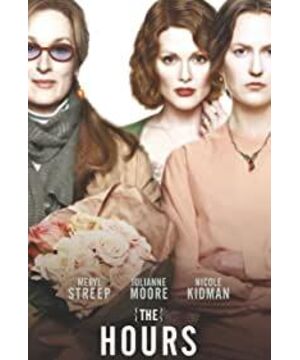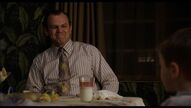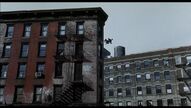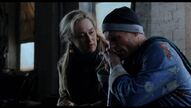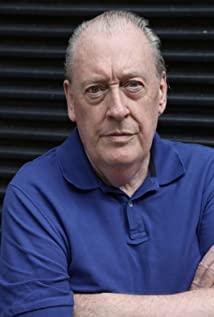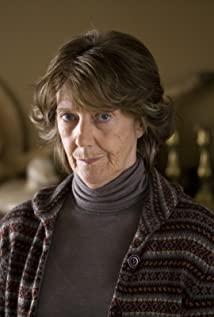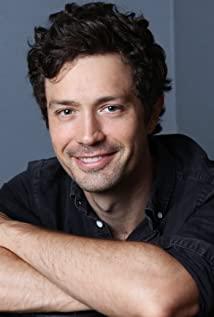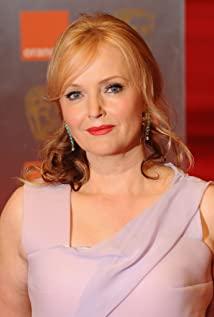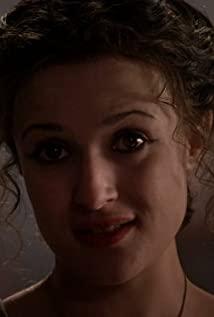"
- Woolf. "Spots on the Wall".
It is this "peaceful and vast" world in their minds that connects the three women of different eras—and the boring snail on the wall.
When life is like a cage imprisoning your dreams, what options do you have?
Virginia Woolf said: If I had to choose between Richmond and death, I would choose death.
Laura Brown said: (Life like that) is death. And I choose to live.
And Clarissa bent over Richard: people do it. They live for each other.
It all started with Woolf. The great woman who wrote "Mrs Delowe" on the brink of madness. The so-called greatness is not because of some earth-shattering compassion, or even because she is an impressive writer. The so-called greatness is because she is willing to question life, and she is willing to face life bloody, tearing and pulling.
Because she is willing to ask the same question in all novels: Can women choose their own lives? Can they be free?
She was soberly aware that she couldn't.
The love of her husband and the serenity of Richmond were a soft web that tangled her and her thoughts tightly. Life had already been arranged before her approval, and she was like a marionette and had no choice.
An unchosen life is nothing but hell.
She said: "If I had to choose between Richmond and death, I would choose death." She knew that outside of Richmond and death, there was no third possibility. The world does not allow her to have a third option. Richmond and death, which actually means no choice.
Although she loves Ray deeply, she also knows that Ray loves her deeply. However, she knows that she is alone at every moment, and everyone is weaving one cage after another, in the name of love, to lock her firmly. But she didn't know that when she said the words "Richmond and Death", she was actually locked in the "Whitaker Yearbook" and "List of Honors" in her heart.
Yes, Ray promised to go back to London. But London is just another Richmond. There she could face life as much as she could, but she could not finally get the freedom of the soul.
Woolf walked into the depths of the lake step by step.
For Laura Brown, "Mrs. Deloway" was a sharp needle that pierced the gorgeous balloon of everyday life, and then turned upside down and shattered the ground.
Laura is designed to be a housewife in the fifties. She doesn't have a job, but she can; she's proud of her husband and children, but she can also read and reflect on Mrs DeLove. She never felt that there was anything wrong with this life. But Woolf finally frightened her.
She was terrified of her own life. At the dinner table, her husband said to his son: I have to tell you, I was thinking of a girl during the war... She was always alone... So I thought, put her in a house... like This is now.
He left her at home. He put the girl who was alone and taciturn at home, and bound her firmly in this emptiness with a house, a child, and some love.
The way he loves himself is, bit by bit, strangling her nature.
News of her friend's illness also frightened her. Laura suddenly discovered that no amount of love, no amount of material things, can fill the meaninglessness of this life. She sat sadly on the toilet, and her husband outside the door (and the ordinary life that day) called out: Are you coming? come on. Come on, re-enter the meaningless life, pretend you never thought, pretend you never asked.
"I'm scared. How a life disappears." How a life disappears in numbness. If before dying, before dying, we realize that this life is but meaningless, that we are only walking dead, that we have never really lived freely—how is such a life different from death?
So Laura said: Such a life is death. And I choose to live.
At this moment, Woolf's soul is resurrected in Laura's body.
But what she can choose is not only "Richmond and death", she can also leave her hometown and live again.
Clarissa yelled at her daughter: He showed me what a mediocre woman I am! I'm concerned about time, banquets, and all the trivial things! ...Only with Richard do I feel truly alive.
She is a gay man who has lived with his girlfriend for ten years. Daughter is her own choice, life is her own choice, she walks into a man's life and then leaves, leaves and then returns. In a way she is free.
But she trapped herself.
Here (I'm glad) the film sublimates to a question about "man's choice" (go for his "women's choice"): can man give himself meaning? Can man help himself to be free?
Clarissa's insistence on caring for Richard wasn't entirely out of love. Richard made her see beyond the mediocre, and made her reflect on her own life in those hours. She told Richard that "people depend on each other to live". It seems that Richard is weak and she is the caregiver, but in fact, she is relying on Richard to live, and she relies on Richard to give her life a meaning.
I live for you. Richard said. If I die, you have to face life by yourself, how will you escape then?
Of course Clarissa wasn't going to die, she didn't even think about "Richmond and death", and life had options for her, even though she sometimes realized it was just "Richmond". Germany and Richmond".
Richard is dead. Died when Clarissa didn't know how to give herself meaning.
The film then arranges for Clarissa and Laura to meet. Turns out Laura is Richard's mother. She slowly looked around Clarissa's life.
They thought I was a cruel mother. Laura said, maybe if I said I regret it, things will be better. But what's the point of saying regret when you have no choice?
Maybe this conversation finally made Clarissa realize that if Laura can choose to start over, if Woolf can choose to die, why can't she give herself meaning? Richmond is everywhere, but fortunately, Richmond was finally not imposed on herself by others, so she can try it out, try to use her own power to shape that free and beautiful world.
The world is right now, right now.
At the end of the novel, Clarissa begins to try to find meaning and freedom for herself.
“We live our lives, do what we want, and then go to sleep—simple and mundane. A few of us committed suicide by jumping off a building, or drowning in a river, or taking sleeping pills; most of us died in accidents ; while the vast majority, the greatest number, are devoured by early sickness and slowly die; if we are lucky, they will perish with time. The only consolation for us is that when the door of our life faces all Difficulties and hopes are opened, and given all that we can imagine, we begin to have time, hour after hour; though it is clear to all except the children (and perhaps even them) that the days after this will be dark Much, much more difficult. Nevertheless, we still cherish this city, this morning, and have great hope for the future."
View more about The Hours reviews


